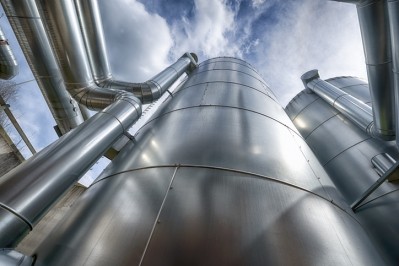US licensee files suit against single cell protein developer Unibio over contractual relationship

Core Protein is the exclusive licensee to produce Unibio’s single-cell protein, branded as Uniprotein and based on patented methane-to-protein fermentation technology, in the US. In August 2019, the two parties said they had begun preparations for the establishment of a protein production plant, with Texas the preferred location.
Core Protein noted in a publicly filed petition: “While the UniProtein technology is still being developed and is not yet commercially viable, the technology is highly desirable because of its renewable and sustainable nature and the potential for efficient and expansive scaling.”
In the US market, natural gas is readily available, abundant, and is priced significantly lower than in other parts of the world making production of UniProtein in the US a compelling economic proposition, added Core Protein.
Milestones
The US licensee claims the parties’ Master License Agreement (MLA) requires Unibio to achieve certain performance milestones regarding proof of and the viability of the concept and technology at industrial quantities.
However, Unibio, according to the US district court filing, allegedly cannot currently achieve the performance milestones it promised for the technology as per that MLA. Unibio reportedly blames the failure on Russia’s invasion of Ukraine, with its sole commercial-sized production plant located in Russia. It is supposedly challenged in gaining access to the facility.
“This triggers the MLA’s force majeure clause, which unambiguously provides for an appropriate extension of the initial term and requires the parties to work together and decide how to continue performing. At all times, Core Protein has been and remains ready, willing, and able to do so. But Unibio is not,” alleged Core Protein.
Payments
Core Protein also claims that Unibio has demanded that it commence its obligations and payments under the parties’ agreement, even though, it continued, those obligations are conditioned upon Unibio demonstrably proving technical and operational competence that its product can be produced reliably at industrial quantities.
Unibio, alleged the US licensee, has also threatened to end its contractual relationship with Core Protein, prompting the company's filing of the case in Houston, Texas.
Core Protein has asked the Texas court to issue orders so that Unibio may not terminate its exclusive US license to produce UniProtein; and so that Unibio may not skip its proof of viability milestones stated in the parties’ contract.
Next steps
The next step will be the parties commencing pre-trial investigation and exchange of information under the Texas rules of court.
Unibio would not comment on the case.
Protelux is the first industrial plant, under license, to bring Unibio's patented U-Loop continuous-flow fermentation process into industrial-scale production. Located in Ivangorod, Russia, close to the border with Estonia, the plant has installed capacity of 6,000 tons of Uniprotein per year that can be scaled up to 20,000 tons.
May 2021 saw Stafilies, the Protelux parent company, buy a shareholding in Unibio in exchange for cash and IP. The IP included all of the knowledge gained over the past five years of how to install and operate industrial-scale production of Uniprotein. Unibio also secured an option to acquire a stake in Protelux in the future.
Unibio and Stafilies had been collaborating since 2016, worked closely together developing solutions and operational guidelines that would benefit future projects and plants all over the world. The industrial-scale production at Protelux was meant to help Unibio showcase its proven technology and processes to potential partners and customers. It was also intending to use that facility to accelerate further product and production improvements and the global roll-out of its technology.








